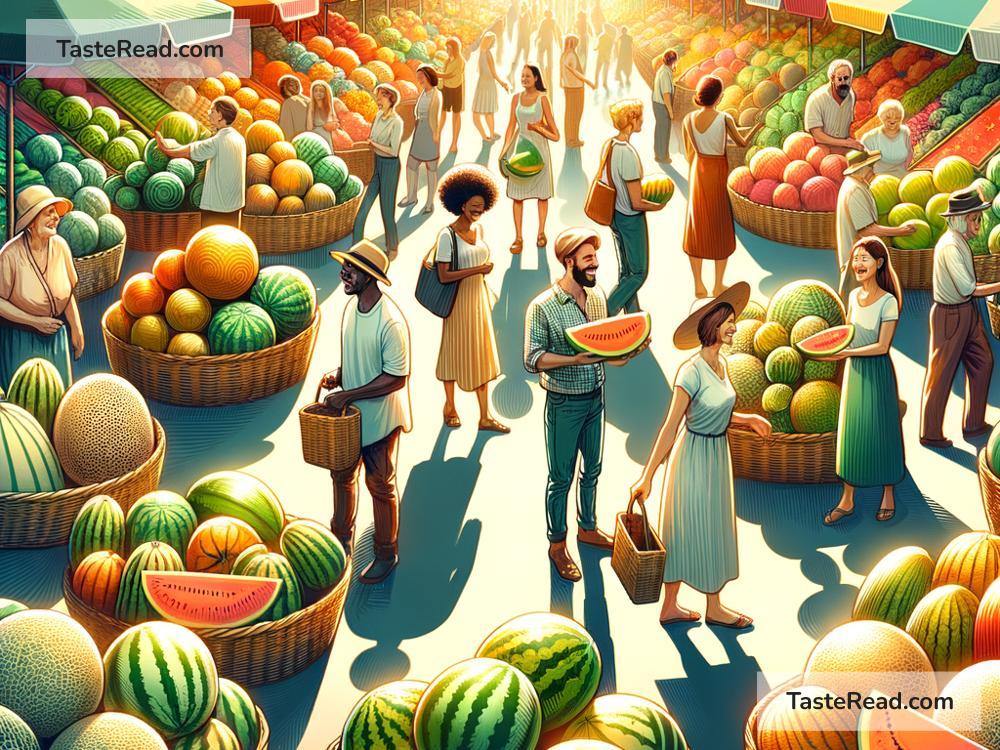How Melons Became Symbols of Friendship
When most people think about melons, they imagine a refreshing fruit enjoyed on hot summer days. But did you know that in some cultures, melons have a deeper meaning? Over time, melons have come to symbolize friendship, kindness, and connection. This may seem surprising, but the story behind it is both fascinating and heartwarming.
The Universal Appeal of Melons
Melons have been loved by people all over the world for thousands of years. Whether it’s juicy watermelon, sweet honeydew, or fragrant cantaloupe, these fruits are widely celebrated for their flavor and ability to bring people together. In many places, melons are seen as a luxury or treat, particularly because growing them often requires care, effort, and patience.
Sharing something special with others is a universal way of showing kindness and friendship. And since melons are often considered a special fruit, they’ve naturally become symbols of generosity and goodwill.
Origins in Ancient Cultures
The idea of melons as symbols of friendship can be traced back to ancient cultures. For example, in parts of Central Asia and the Middle East, melons were highly prized. Growing them in these regions was no easy task because they needed a lot of water and careful attention. When someone gifted a melon, it wasn’t just a fruit—it was a sign of respect and appreciation, as it showed the giver cared deeply for the person they were sharing it with.
In ancient China, melons were seen as symbols of harmony and unity. Studies suggest that early Chinese farmers grew melons as far back as 2000 years ago. The fruit quickly became associated with family gatherings, celebrations, and building relationships with neighbors. Offering a melon to someone was like saying, “Let’s enjoy this sweet moment together.”
Melons in Traditions and Festivals
Even today, melons play a role in cultural traditions and ceremonies. In Uzbekistan, for example, melons are celebrated during special festivals that highlight their importance in local history and agriculture. The fruits themselves are often shared among friends and family, reinforcing their symbolic meaning. Large, beautifully grown melons are sometimes even presented as gifts to mark special occasions or to honor guests.
In Japan, gifting fruits—especially high-quality, perfectly grown ones—has a long history. Melons, including cantaloupes and watermelons, are often given as presents. They represent kindness, thoughtfulness, and an appreciation for the relationship. In fact, premium melons in Japan can cost hundreds of dollars, making them not just a fruit but a meaningful symbol of value and respect.
Similarly, in Turkey, melons are associated with hospitality. When visitors arrive, sharing food or fruit (including melons) is a way of welcoming them warmly. The act of offering melons at the table is an age-old practice to show care and friendship.
Why Melons Represent Friendship
So, what makes melons the perfect fruit to symbolize friendship? Here are a few reasons:
-
Sweet Taste: Melons have a universally appealing sweetness. Just like their taste, friendships bring sweetness and happiness to life. Sharing a melon feels like sharing joy.
-
Effort to Grow: Melons require care and dedication to grow well, just like maintaining a strong friendship requires time, effort, and mutual respect.
-
Size and Generosity: Melons are often large fruits, making them easy to share with loved ones. Their size reminds us that generosity and sharing are important parts of friendship.
-
Seasonal Celebration: Melons are often associated with summer—a time for gatherings, celebrations, and spending time with friends and family.
Modern Melon Moments
Today, melons continue to hold their place as symbols of friendship in many cultures. Whether it’s gifting a beautifully wrapped premium melon or sharing slices of watermelon at a picnic, the tradition carries on. Social media platforms even feature creative ways people use melons to connect, such as carving them into art or pairing them with other foods for festive displays.
Melons have also become part of global culinary trends, inspiring chefs and home cooks to include them in salads, desserts, drinks, and more. Sharing these creative melon dishes is a modern way of celebrating friendships, proving that the simplest acts of kindness can be meaningful.
A Sweet Reminder
The story of melons as symbols of friendship reminds us that the simplest things in life can hold great meaning. A humble fruit can carry a message of love, care, and connection that goes beyond words. The next time you enjoy a slice of melon with someone special, take a moment to appreciate its deeper significance. You’re not just sharing a fruit—you’re sharing a bond.
So, whether you’re gifting a melon to a friend, enjoying one at a summer gathering, or celebrating a tradition, remember the sweet legacy of this fruit: it’s more than nourishment—it’s a token of friendship.


